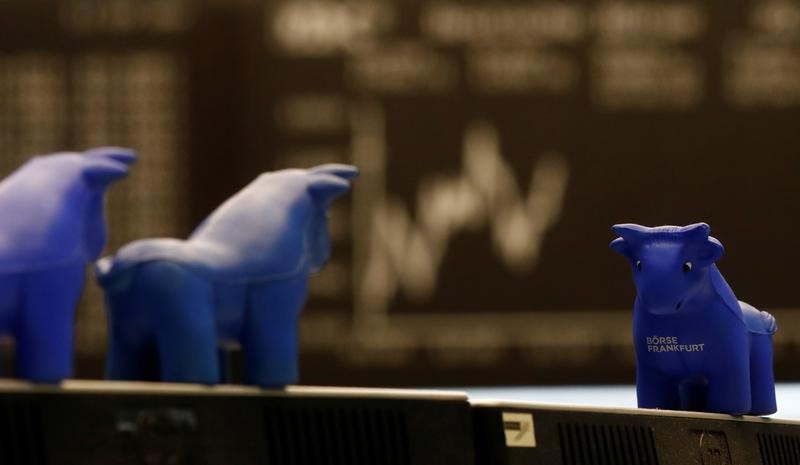By Peter Nurse
Investing.com - European stock markets traded higher Tuesday, recovering after last week’s brutal selloff, but concerns remain that aggressive central bank rate hikes to tackle inflation could spark a global recession.
By 3:50 AM ET (0750 GMT), the DAX in Germany traded 1.1% higher, the CAC 40 in France rose 1.4%, and the UK’s FTSE 100 climbed 0.6%.
The positive sentiment in Europe comes as global markets appear to be staging a comeback rally after a tumultuous week last week after a number of global central banks tightening monetary policy to tame red-hot inflation.
The U.S. Federal Reserve, the Swiss National Bank and the Bank of England all increased interest rates last week, while European Central Bank President Christine Lagarde restated on Monday the central bank’s intention to raise interest rates in July and September even after the recent volatility in the Eurozone’s bond markets.
Surging inflation and the higher interest rates to combat this has resulted in corporate distress in companies in Germany, the U.K., France, Spain, and Italy reaching the highest levels since August 2020, according to the Weil European Distress Index.
Elsewhere, investors will be closely following the political situation in France after weekend elections delivered a hung parliament.
President Emmanuel Macron is expected to invite all political parties able to form a group in the new parliament for talks later Tuesday, with political paralysis possible if talks fail.
In corporate news, Ocado (LON:OCDO) stock fell 4.3% after the online grocer announced later on Monday that it was raising 575 million pounds ($707 million) through a discounted share sale.
Rolls-Royce (OTC:RYCEY) stock rose 1.2% after Sky News reported that the engine maker is set to deliver a 2,000 pound ($2,460) cash bonus to nearly three-quarters of its U.K. workforce as the engine maker looks to help its employees deal with rising living costs.
Oil prices rose Tuesday, regaining some of last week’s hefty losses as traders focused once more on the tight supply of crude coupled with the prospect for higher U.S. and China demand in the near term.
By 3:50 AM ET, U.S. crude futures traded 1.7% higher at $109.84 a barrel, while the Brent contract rose 1% to $115.31.
Both benchmarks posted their first weekly decline since April last week on concerns that aggressive monetary tightening could result in a global recession and fuel demand destruction.
The WTI contract dropped over 9% last week, and didn’t trade on Monday as it was a U.S. public holiday, while Brent fell over 7% last week, and only clawed back 0.9% in the previous session.
Additionally, gold futures fell 0.2% to $1,837.55/oz, while EUR/USD traded 0.5% higher at 1.0561.
